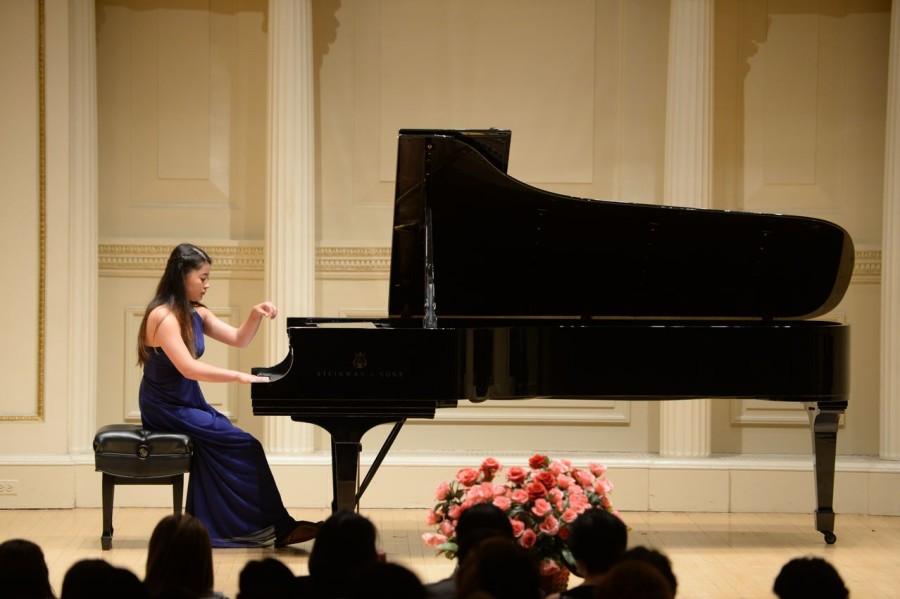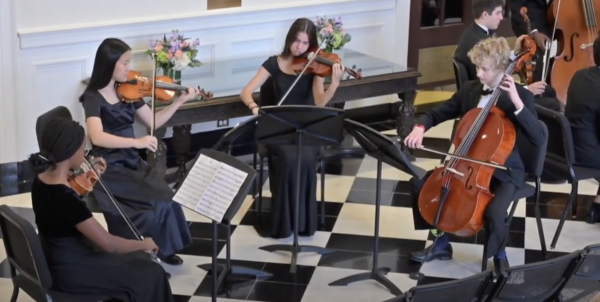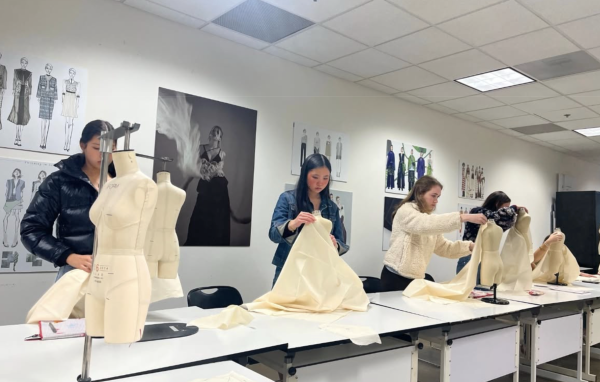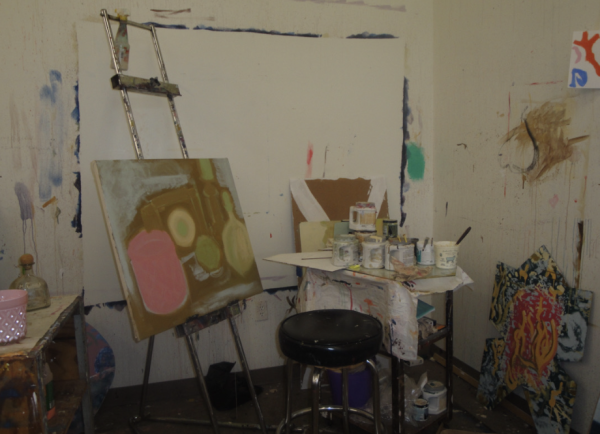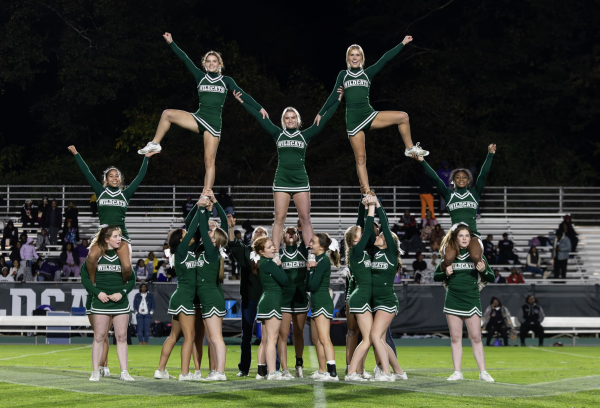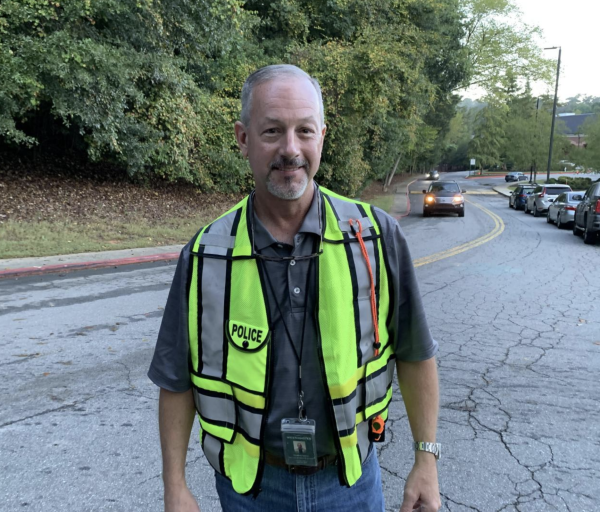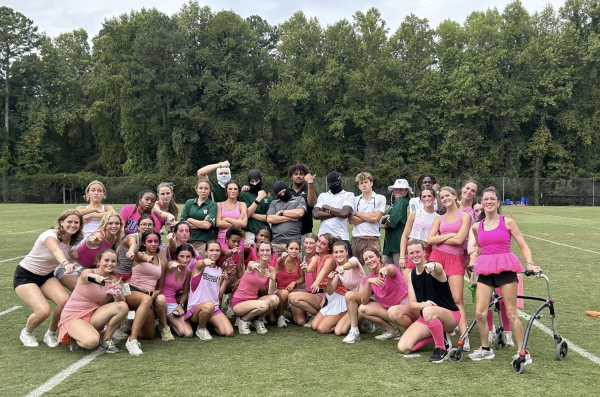Pattillo’s piano talent shines in performance at Carnegie Hall
At an age when most children don’t even know what a piano is, junior Mia Pattillo was already learning to play the instrument.
“I started playing piano when I was three,” said Pattillo. “I was too short to reach the pedals.”
Thirteen years later, Pattillo’s love for the instrument has led her to place highly in myriad competitions and to perform in venues as vaulted as New York City’s Carnegie Hall, but ultimately its biggest impact on her life has been internal.
“As cliché as it sounds, piano’s taught me so many life lessons,” said Pattillo. “I feel like I would be completely different if it weren’t in my life.”
Last May, Pattillo’s commitment to the instrument was rewarded when she won second place in a competition, the International Piano and Strings Competition, held by American Protégé, and was thus given the honor of performing at Carnegie Hall. The concert venue, often described as one of the most prestigious venues in the world for both classical and popular music, was built by philanthropist Andrew Carnegie in 1891 and has since hosted the world’s most acclaimed musicians, such as cellist Yo-Yo Ma, in the 250 performances it hosts each season.
“Playing at Carnegie Hall is so prestigious,” said junior and fellow pianist Kathryn Jian, who has competed against Mia in many competitions and has also performed at Carnegie Hall. “I think it’s great Mia got that opportunity.”
Pattillo’s young age- she was merely 15 at the time of the performance- makes her accomplishment all the more remarkable.
“Performing at Carnegie Hall is an honor to anyone, no matter what age,” said Pattillo’s piano teacher of two years, Elena Cholakova. “To be able to do so as a sophomore in high school is a tremendous achievement.”
For Pattillo, performing at Carnegie Hall was an experience unparalleled by other recitals she has partaken in.
“It was so surreal to perform in the place where all of the pianists I look up to have performed,” said Pattillo. “It was such an incredible opportunity to perform my “Jeux d’eau” by Maurice Ravel in one of its concert halls in front of an audience.”
This opportunity was the result of years of painstaking, diligent practice.
“I spend a lot of time practicing piano each week,” said Pattillo. “It’s not always the most fun, but I always get into the music once I’ve started. It can definitely be hard balancing piano and and tennis with schoolwork, and it’s definitely even more of a struggle with the academics of junior year.”
Mia’s assiduous efforts have not gone unnoticed.
“Mia is a very dedicated and talented young pianist,” said Cholakova. “She is a hard worker and loves the challenge of difficult repertoire. Mia performs her best on stage where so many young performers give in to the pressure and anxieties of the live performance. That speaks of maturity beyond her years.”
Pattillo hopes to heighten awareness of the splendor of classical music through her playing.
“Classical music is amazing, and it makes me so sad to see it dying out, because honestly, it’s not outdated at all, but I feel like the reason people don’t appreciate it as much nowadays as pop or rock is that we aren’t really exposed to it,” said Pattillo, who counts Lizt as her favorite composer.. “To truly understand classical music, you need a lot of exposure to it and when everyone today just goes around hearing pop music that’s what we’re naturally inclined towards. But when you really do understand classical music, it’s such a beautiful thing and it can really impact you. Honestly, listening to classical music really does help take away stress and when I play it I can put emotion into it which is quite cathartic.”
Accordingly, Pattillo appreciates the artistic license afforded by the idiosyncrasies of classical music.
“First off piano and music are just really so amazing because there are a million ways to express the same thing and it’s really interesting how different people interpret the same piece of music. No interpretation is the same, and you can engage in it differently depending on your mood and there’s no right or wrong answer at all which is really liberating, especially compared to academic subjects,” said Pattillo. “Because honestly if all classical music was expressed the same way it would be so boring; what’s so beautiful about it is the individuality and creativity that people can put into it.”
Although Pattillo competes in several competitions a year, she views them more as incentives to practice rather than the point of playing; her true passion lies in giving back to the community through music. veral competitions a year, she views them more as incentives to practice rather than the point of playing; her true passion lies in giving back to the community through music. She teaches piano to several children from ages 5 to 11 and usually plays for nursing homes and special needs centers a couple times each month.
“I feel like an important part of being a pianist is performing for people who don’t really have access to live music,” said Pattillo. “When the [nursing home] residents shake my hand and thank me for playing it’s really touching because I feel like I’ve made an impact by giving them just a brief moment of live music because it’s like a break from reality. It’s really incredible what live music can do for someone who doesn’t really have much access to it. I also play for my church, which holds a lot of significance to me because some of the first most influential classical pieces originated from the church and organ so it’s like taking it back to the roots also just to give back to God because He is the one who gave me the will and determination and talent to play piano in the first place. God gave me [my talent in] classical piano for a reason and so I want to take advantage of that gift and spread it everywhere!”
Furthermore, Pattillo’s playing has had mryriad positive effects on her life.
“Learning piano requires a ton of self discipline because you’re literally alone in a room just practicing notes and sometimes it’s incredibly boring but just powering through it really builds a lot of mental and emotional discipline,” said Pattillo. “Also performing in front of people is possibly one of the most terrifying experiences in the world but it has raised my confidence on stage regarding other aspects: giving a speech or presentation seems easier compared to performing piano.”
And as for Pattillo’s advice to young pianists reaching for success?
“I was recently introduced to the inspiring Drake adage, ‘Sometimes it’s the journey that teaches you a lot about your destination,’ which really encompasses my attitude towards practice, “ said Pattillo. “An important part of playing piano is to keep in mind the significance of each practice opportunity because it teaches me a lot about where I’m heading regarding music.”
Although she is undetermined as to a career, Pattillo hopes to complete a double undergraduate degree in music and another subject.
“No matter how my future plans change, I know that I will always keep playing piano,” said Pattillo. “There’s no way I can give up something that is so central to who I am.”
